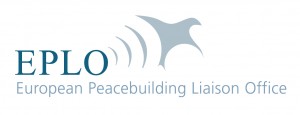About this event
This event will address issues related to gender, human rights defenders, illicit economies and transitional justice, through reflections and evidence from Colombia 5+ years on from the signing peace agreement.
Speakers
Beatriz Quintero, Red Nacional de Mujeres: speaking on Women’s role in the peace negotiations and the implementation of the gender focus related to participation, illicit crop substitution and truth.
Linda Cabrera, Sisma: speaking on Women Human Rights Defenders: land, victims and the end of hostilities
Louise Winstanley, ABColombia: speaking on Human Rights Defenders and rural communities: the Colombian Government’s reluctance to implement the peace accord
Moderator:
Paul Quinn, Head of From Violence to Peace Team, Christian Aid
On May 29th 2022 Colombians will go to the polls to decide upon their next Government. Christian Aid will host a panel discussion to undertake a stocktake of five years on from the Peace Process and next steps.
While the peace agreement in Colombia holds and advances, political protests in 2021 saw excessive use of force directed at protestors calling for social justice and peace. The implementation of the agreement, which is revered by many for its ambition and comprehensive approach to addressing the roots of Colombia’s half-century conflict, has not been smooth. Political change, the effects of the Covid-19 pandemic, an economic downturn and the emergence of new armed groups are just some of the challenges which policymakers and practitioners have faced.
The signing of the 2016 peace agreement – often cited as one of the most inclusive and comprehensive peace agreements – and its potential to transform gender relations, stereotypes and roles in Colombia, inspired hope and high expectations. Parties to the agreement recognised the need to ensure women’s voices were heard in the peace process in order to foster stability for society overall. Yet progress, particularly in implementation of the gender provisions of the agreement, has been significantly delayed and full and comprehensive implementation of the agreement is vital, if gender equality is to be advanced in Colombia. Impunity for issues such as gender and sexual violence experienced during the conflict must be addressed.
The situation of HRDs and rural communities in light of the increased violence in Colombia in the past year, highlight the importance of functioning mechanisms for the protection of communities and HRDs. The FPA created key spaces for dialogue at the local and national level although these have often been neglected and space for civil society participation has been considerably reduced. Notable progress has been made with the implementation of 16 Special Transitory Peace Voting Districts, which work to expand political participation in regions most impacted by the conflict. March 2022 represents the first time the 16 seats, created for victims by the peace agreement, will be in operation.
President Duque declared his intent to resume aerial glyphosate spraying of coca crops, despite the risk this poses to human health and licit crops. Over the last 4 years Christian Aid has partnered with SOAS university to address issues of Drugs and Disorder, to better understand transitions from war to peace economies in drug-affected borderlands in regions experiencing or recovering from armed conflict. This explored the way illicit drug economies function in drugs affected borderlands in Colombia and the ways in which they connect with violence, peace and development. This includes recommendations on the role of international actors on addressing illicit drug economies.
Following on from the European Peace Liaison Office event on Violence, Peace and Drugs, Christian Aid proposes a panel event, which will discuss the issues of gender, human rights defenders and illicit economies drawing on reflections and evidence from Colombia five + years on from the peace agreement of 2016, including the importance of women, marginalised people and local communities’ voices in the implementation of the peace agreement.

